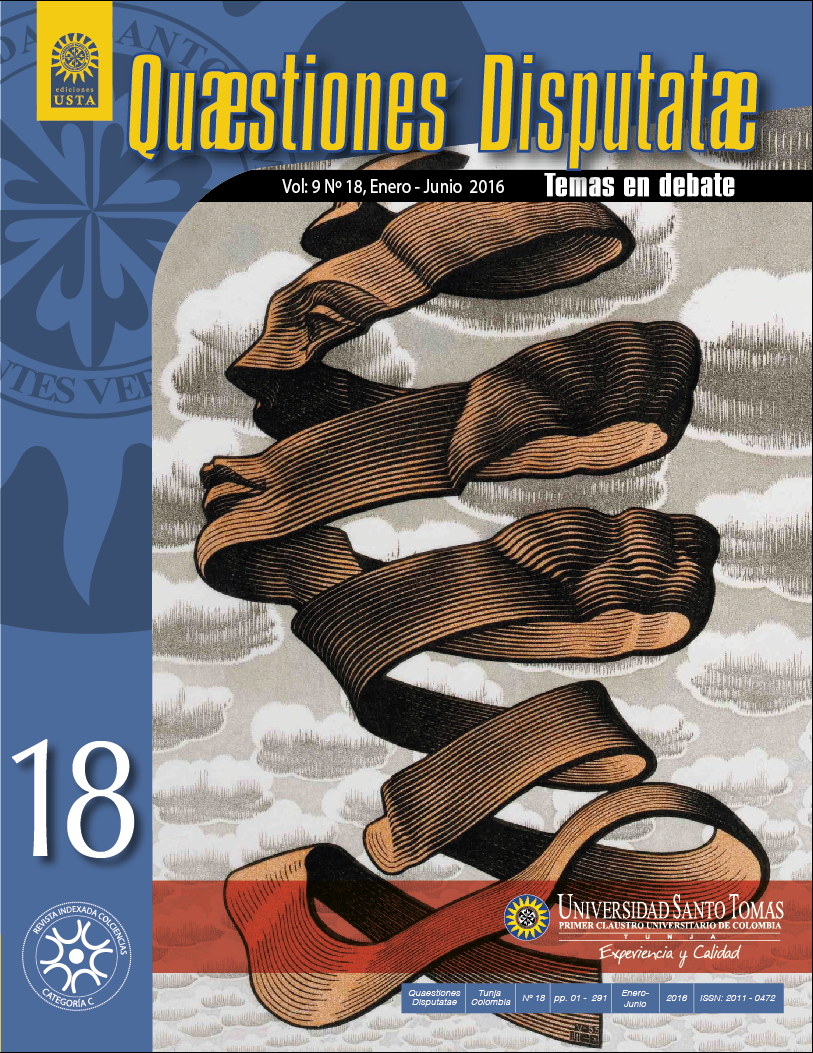About the Metaphysical Necessities of Man in Schopenhauer’s thinking: From the negation of the Will to the Proposition of Natural Metaphysics
Main Article Content
Abstract
Throughout the development of Arthur Schopenhauer’s thought, there are various moments of refection that tell us about the origins, bases and limits of metaphysical thinking. From his first publication on philosophy, Schopenhauer understands existence based on the marked pessimism of his theory of the “will to live” and puts forward the need to deny it. Later on, following Kant, in the volumes of The World as Will and Representation, the thinker will propose that the metaphysical is a basic necessity for man, whose pressing concerns are answered by religions and philosophies in different ways. Both religion and philosophy, however, given the limitations of our conditioned knowledge, can only give us an approximation to that which is transcendent, never certainty or evidence. Only intuition can give us access to the best metaphysical explanation possible and it is from that starting point that humanity will find in its diverse metaphysical expressions a crosscutting and timeless knowledge that feeds both religions and philosophical systems. Starting from the essay About the Metaphysical Necessities of Man, this study seeks to relate both stages of Schopenhauer’s philosophy: the establishment of the philosophy of will and the affirmation of natural metaphysics.
Article Details
How to Cite
Narváez-González, C. (2016). About the Metaphysical Necessities of Man in Schopenhauer’s thinking: From the negation of the Will to the Proposition of Natural Metaphysics. Quaestiones Disputatae: Temas En Debate, 9(18), 12-30. Retrieved from http://revistas.ustatunja.edu.co/index.php/qdisputatae/article/view/1039
Section
Artículos Núm. 18
De acuerdo a la Licencia Creative Commons Atribución-No Comercial-Sin Derivar 4.0 Internacional, se autoriza leer, descargar, copiar, distribuir, imprimir, buscar o enlazar los textos completos de estos artículos, siempre y cuando se conceda el crédito a los autores de los textos y a la Revista Quaestiones Disputatae: temas en debate, como fuente de publicación original. No se permite el uso comercial de copia o distribución de contenidos, así como tampoco la adaptación, derivación o transformación alguna de estos sin la autorización previa de los autores y de la dirección de Quaestiones Disputatae: temas en debate.

Esta obra está bajo una licencia de Creative Commons Reconocimiento-NoComercial-SinObraDerivada 4.0 Internacional.
References
Kant, I. (1993). Crítica de la Razón Pura. Trad. Pedro Ribas. México: Alfaguara.
Ruiz Callejón, E. (2007). Metafísica e Interpretación en Schopenhauer: El recurso al cuerpo como medida. En I. Sáez, J. de la Higuera. & Zúñiga. (Ed.), Pensar la Nada: Ensayos sobre filosofía y nihilismo (pp. 21-40). Madrid, España: Biblioteca Nueva.
________. (2011). Schopenhauer y la afirmación del ‘error fundamental’: «Estamos aquí para ser felices». Gaceta de Antropología, 27(2), artículo 21. Recuperado de http://hdl.handle.net/10481/17344.
________. (2013). Arte y religión en Schopenhauer: de la necesidad metafísica a la justificación estética de la existencia. Franciscanum: revista de las ciencias del espíritu, 55(159), pp. 57-104. Recuperado de http://dialnet.unirioja.es/servlet/ articulo?codigo=4563170.
Safranski, R. (2013). Schopenhauer y los años salvajes de la Filosofía. Trad. José Planells. Buenos Aires, Argentina: Tusquets Editores.
Schopenhauer, A. (1975). Sobre la religión: un diálogo. En Ensayos sobre Religión, Estética y Arqueología. Trad. Edmundo González Blanco. Madrid, España: La España moderna.
30
________. (2003). El Mundo como Voluntad y Representación. Vol. (1). Trad. Roberto Aramayo, Madrid, España: Fondo de cultura Económica.
________. (2003). El Mundo como Voluntad y Representación. Vol. (2). Trad. Roberto Aramayo. Madrid, España: Fondo de cultura Económica.
________. (2006). Adiciones a la teoría de la nihilidad de la existencia. En Parerga y paralipómena. Trad. Pilar López de Santa María. Madrid, España: Trotta.
Ruiz Callejón, E. (2007). Metafísica e Interpretación en Schopenhauer: El recurso al cuerpo como medida. En I. Sáez, J. de la Higuera. & Zúñiga. (Ed.), Pensar la Nada: Ensayos sobre filosofía y nihilismo (pp. 21-40). Madrid, España: Biblioteca Nueva.
________. (2011). Schopenhauer y la afirmación del ‘error fundamental’: «Estamos aquí para ser felices». Gaceta de Antropología, 27(2), artículo 21. Recuperado de http://hdl.handle.net/10481/17344.
________. (2013). Arte y religión en Schopenhauer: de la necesidad metafísica a la justificación estética de la existencia. Franciscanum: revista de las ciencias del espíritu, 55(159), pp. 57-104. Recuperado de http://dialnet.unirioja.es/servlet/ articulo?codigo=4563170.
Safranski, R. (2013). Schopenhauer y los años salvajes de la Filosofía. Trad. José Planells. Buenos Aires, Argentina: Tusquets Editores.
Schopenhauer, A. (1975). Sobre la religión: un diálogo. En Ensayos sobre Religión, Estética y Arqueología. Trad. Edmundo González Blanco. Madrid, España: La España moderna.
30
________. (2003). El Mundo como Voluntad y Representación. Vol. (1). Trad. Roberto Aramayo, Madrid, España: Fondo de cultura Económica.
________. (2003). El Mundo como Voluntad y Representación. Vol. (2). Trad. Roberto Aramayo. Madrid, España: Fondo de cultura Económica.
________. (2006). Adiciones a la teoría de la nihilidad de la existencia. En Parerga y paralipómena. Trad. Pilar López de Santa María. Madrid, España: Trotta.

